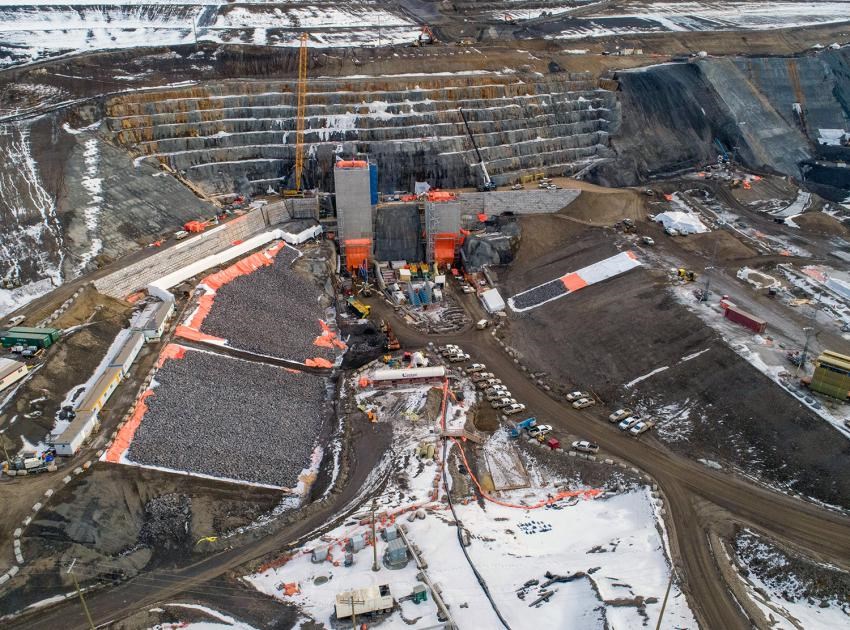BC Hydro says it is scaling down construction activities at Site C in response to the COVID-19 pandemic.
In a release March 18, BC Hydro said it's working with its prime contractors and unions over the coming days to "safely scale back certain construction activities at the project site," but did not specify what works are included.
Work to achieve river diversion this fall remains a priority, BC Hydro said. Work will also continue on Highway 29 realignments, transmission line construction, and reservoir clearing.
"Focusing only on essential work and critical milestones will help reduce the number of workers staying at the worker accommodation lodge and result in fewer workers travelling to and from Fort St. John and the Peace Region," BC Hydro said in a statement.
Other essential site security and environmental work will also continue.
There are an estimated 3,600 workers currently employed on the project. Roughly 45% are with Peace River Hydro Partners, the largest on-site prime contractor, which is responsible for building both the river diversional tunnels and the actual earthfill dam.
There have been no confirmed cases of COVID-19 at the work camp or construction site.
BC Hydro says it has been monitoring global COVID-19 developments since January, and measures are in place to limit its potential spread at the construction site and work camp.
That includes restrictions on non-essential employee travel and the postponement of non-essential site tours, meetings, and on-site training. The camp gymnasium and theatre have also been closed, and self-serve dining stations have been eliminated.
BC Hydro said work will continue on Highway 29 realignments, the transmission line, and reservoir clearing because "the majority of these workers do not stay in the worker accommodation lodge."
This is a developing story.



